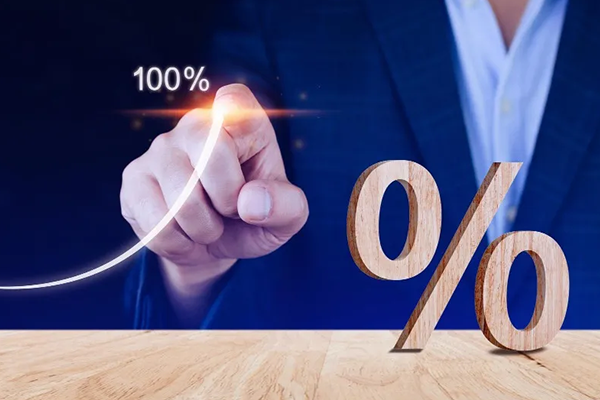Author: Matthew Jeffery, Tax Director

Do you need to file a tax return online before the self-assessment deadline of 31 January?
We have put together a guide to help those who have still not completed their 2022/23 tax return understand what you need to do and by when.
The guide will also be useful for those that are new to running a business or who have already filed their 2022/23 tax return.
Business owners may find completing a tax return daunting, but some expert knowledge and good preparation can make things a little easier. So, let’s get started.
This guide will cover the following topics:
![]() What is a self-assessment tax return?
What is a self-assessment tax return?
![]() Who needs to complete a self-assessment tax return?
Who needs to complete a self-assessment tax return?
![]() When is the deadline to submit 2022/23 a self-assessment tax return?
When is the deadline to submit 2022/23 a self-assessment tax return?
![]() When would my first tax return be due?
When would my first tax return be due?
![]() How to register to submit a tax return.
How to register to submit a tax return.
![]() How to fill in your tax return.
How to fill in your tax return.
![]() Paying tax (including ways to pay).
Paying tax (including ways to pay).
![]() What are Payments on Account (POA’s)?
What are Payments on Account (POA’s)?
![]() Penalties for late filing and appeals.
Penalties for late filing and appeals.
![]() Using an accountant for your tax returns (and how much does it cost?)
Using an accountant for your tax returns (and how much does it cost?)
![]() Filing Digital Tax Returns (Making Tax Digital).
Filing Digital Tax Returns (Making Tax Digital).
What is a self-assessment tax return?
Self-Assessment is a system HM Revenue and Customs (HMRC) uses to collect Income Tax.
Tax is usually deducted automatically from wages and pensions (via PAYE). People and businesses with other income must report it in a tax return.
It is called ‘self-assessment’ because that is exactly what it is. HMRC trusts taxpayers to workout their tax due and tell HMRC what it is. It is then down to HMRC to challenge your calculations, should they wish!
Who needs to complete a self-assessment tax return?
If you are a business owner, you will need to submit a self-assessment tax return if you have income over £1,000 or, you have income of more than £10,000 but you make a loss.
If you are the director of a limited company operating a business, you will also need to submit a tax return.
You can check if you need to submit a tax return on the GOV website here.
When is the deadline to submit a 2022/23 self-assessment tax return?
For the 2022/23 tax year, the deadline for filing paper tax returns was midnight on 31 October 2023. The online deadline is midnight on 31 January 2024.
HMRC are strict about when you must submit information and will place financial penalties on those who file information late.
When would my first tax return be due?
You must complete a tax return by 31 January following the tax year in which you started your business.
If you started your business between 6th April 2022 and 5th April 2023, you will need to submit a 2022/23 tax return by 31 January 2024. If you started after April 2023, your first return would need to be submitted by 31 January 2025.
How to register to submit a tax return.
If you’ve not completed a tax return before, then you will need to register with HMRC first. You should register by 31 October following the tax year you started your business. You can register for self-assessment here on the GOV.UK website.
Please note, you should not register as self-employed or as a partnership if the purpose of registering is to declare holiday let income. You would choose the ‘other reason’ option. This includes receiving income from property.
Once you are registered you will be issued with a UTR (Unique Taxpayer Reference) number.
You can then submit your self-assessment tax return online.
You will need to set up a Government Gateway account. To do this, you just need to follow the instructions that are sent with the letter containing your UTR number. After registering for the account online, your user ID and an activation code is sent in the post. This code will complete your Gateway account set-up. HMRC warns that the whole process can take around 30 days, therefore, our advice is not to leave it until the last minute. It’s best to set up the account as early as you can.
If you are late registering, HMRC will usually allow an extension to the 31 January deadline.
If you have filed a tax return before, but not in the last few years, you may need to register again. To check, log in or set up a Government Gateway account.
How to fill in your tax return.
Before completing your self-assessment, you need to ensure that you gather all the information you will require. You will need your UTR and National Insurance number.
You may also need details of other sources of income. For example, if you are employed, you will require your P60 end of year certificate, P11D expenses or benefits or P45 if you have recently left work. In short, all sources of income and tax-deductible expenses should be included on your tax return.
| Some examples of information you may need: |
| – Details of self-employment income and expenses to work out your profit or loss for the last year. – Details of any property income and expenses to work out your rental profit or loss for the last year. – Employment and pensions income information (P60, P11D and P45 for any jobs you have had in the last year). – Interest certificates from banks or building societies. – Details of pension contributions. – Details of any chargeable capital gains made in the last year. |
You will only need to fill out the sections on the return that are relevant to you. Take care when completing your tax return. If you’re completing it online, you can always save it and come back to it. Don’t rush it!
You will not need to provide HMRC with the supporting documents like invoices and receipts, but it is important to keep records for a 5-year period.
The return itself is split into several sections: the first asks about your personal details, the second and third sections are about your income and where this comes from. Section two looks at employment or self-employment or partnership, property income, trusts and capital gains. Section three asks about income from bank or building society interest, pensions, share dividends and benefits. If you answer ‘Yes’ to any questions in these sections, the form will expand and ask for further details.
The final section of the form asks about other information such as student loans, pension contributions, gifts and charitable donations, child benefit and marriage allowances.
HMRC have provided this useful guide to completing your tax return.
Allowable expenses
As your business will have various running costs, you can deduct some of these costs to work out your taxable profit as long as they’re ‘allowable expenses’. Find out more about allowable expenses if you’re self-employed here.
Paying tax (including ways to pay).
Payment of income tax is due by 31 January following the end of the tax year.
For 2022/23 tax year, any tax due should be paid to HMRC by 31 January 2024.
If you are also required to make a payment on account for the next tax year, the first payment is also due by 31 January and the second payment by 31 July 2024.
Paying your tax bill before these deadlines is extremely important as you will be charged interest and an automatic penalty if your payment is late. There are several ways to pay your bill, and the time you need to allow depends on the method you use to pay.
| Same or next day | 3 – 5 working days |
| – Through your online bank account – Using online or telephone banking (Faster Payments) – By CHAPS – By debit or corporate credit card online – At your bank or building society | – Bacs – Direct Debit – Cheque through the post |
You can pay online via this link on the GOV.UK website: Pay your Self Assessment tax bill
What are Payments on Account (POA’s)?
POA’s are payments towards the next years tax return. They are calculated based on your tax liability for the previous year. If you have a tax liability of £3,000 for 2022/23, you will need to make two POA’s of £1,500 each. In short, you are paying your tax upfront!
You will not need to make payments on account if your tax liability is less than £1,000 or 80% of your tax liability is collected at source e.g. via PAYE.
Penalties for late filing and appeals.
There are four ways in which penalties might be charged under the self-assessment regime.
- Late filing
This is an automatic fine that is applied if you missed the deadline dates set. The penalty starts at £100 and can increase up to £1,600 per year.
- Late payment
A 5% late payment surcharge is applied automatically if you miss the payment deadline and the tax is still not paid by 1st March. The fine is calculated according to the amount of unpaid tax at the due date. Late payment interest will also be charged.
- Failure to notify
A penalty charge will be applied if you fail to notify HMRC of any changes that might affect the amount of tax you should pay. The penalty is calculated according to the amount of unpaid tax at the due date.
- Inaccuracy
Should there be any inaccuracies in your self-assessment that change the amount of tax you owe, then a penalty charge may be applied. The charge is calculated as a percentage of any unpaid tax which is now due as a result of the inaccuracy.
HMRC has a tool on their website that can help you estimate the amount of penalty that you might be charged.
All penalties can be appealed, but you must do this within 30 days of the penalty notice.
Using an accountant for your tax returns (and how much does it cost?)
Despite being called ‘self-assessment’ you do not have to do your tax returns by yourself. Many business owners will employ an accountant or tax advisor to do it for them.
An accountant or tax advisor will have the know-how to accurately complete your self-assessment and may be able to minimise the amount of tax you have to pay with their understanding of tax reliefs available. Tax rules change regularly so using a professional is a good way to ensure your business remains up to date.
Keep in mind that not all professional advisors charge the same amount for completing a self-assessment. It’s practical to shop around and get the best price and service for you. On average, a typical fee for this type of work would be around £250-£500 for a straight-forward tax return. Good advice will pay for itself!
Filing Digital Tax Returns (Making Tax Digital).
You may have heard about the UK Government’s campaign to Make Tax Digital (MTD). In short, HMRC plans to transform the online filing and reporting system in the UK. Taxpayers will be required to report digitally to HMRC their income and expenditure every three months.
Business owners are likely to be impacted by the changes from April 2026. From this date, it will be mandatory to use a digital accounting system like Xero, Quickbooks etc.
Get in touch with Zeal!
01633 287898 | [email protected] | www.gozeal.co.uk/contact/
Further guidance including self-assessment FAQs and Zeal’s Top Tips for getting prepared for self-assessment can be found here.
Disclaimer by Zeal
This article was written by Matt Jeffery of Zeal Tax, a leading capital allowances specialist firm in the UK, as an educational piece to help business owners understand their tax responsibility. Matt can be contacted either by calling 01633 287898 or by email on [email protected]. Zeal Tax offers a FREE, no obligation consultation and estimate of the tax savings and refund you could achieve.
The information provided in this article is of a general nature. It is not a substitute for specific advice in your own circumstances. You are recommended to obtain specific advice from a professional before you take any action or refrain from action. Whilst we endeavour to use reasonable efforts to furnish accurate, complete, reliable, error free and up-to-date information, we do not warrant that it is such. We and our associates disclaim all warranties.



